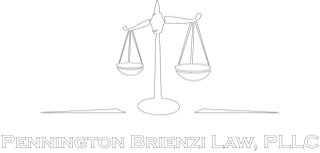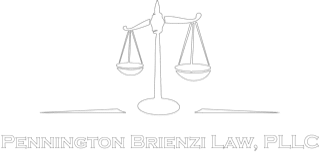Personal Injury Law
Fighting for your rights after an accident
Fighting for Fair Compensation
We are dedicated to obtaining fair compensation for our clients and will fight to protect their rights. With our expertise and commitment, you can trust us to handle your personal injury case with care and professionalism.
- Benefits
- Why Choose Us

Client Testimonials
Daniel Fenti
Brittany Penny
Cassandra Brown
Craig Green
E Marina
Katrina Anderson

Our Goal
Guiding You in the Process
From the initial consultation to the final settlement or trial, we’ll guide you through the entire process, fighting for your rights and ensuring you receive the compensation you deserve.
FAQs
Find answers to frequently asked questions about personal injury matters.
What damages can I file for?
If you’ve suffered a personal injury due to someone else’s negligence or intentional actions, you may be entitled to compensation for various damages. The specific damages you can file for in a personal injury claim or lawsuit can vary depending on the circumstances of your case and the laws. Here are common types of damages in personal injury cases:
**Medical Expenses:**
You can seek compensation for current and future medical expenses related to the injury. This includes hospital bills, surgery costs, medication, rehabilitation, and any other necessary medical treatments.
**Lost Wages:**
If your injury prevents you from working, you may be entitled to compensation for the wages you have lost. This can include both current lost income and future lost earning capacity if your ability to work has been permanently affected.
**Property Damage:**
If your personal property (e.g., a vehicle) was damaged in the incident that led to your injury, you can seek compensation for the cost of repairing or replacing it.
**Pain and Suffering:**
Pain and suffering damages are intended to compensate you for the physical and emotional distress caused by the injury. These damages are more subjective and may include factors such as pain, anxiety, depression, and loss of enjoyment of life.
**Emotional Distress:**
In some cases, emotional distress damages may be separate from pain and suffering. This type of damage is intended to compensate for the psychological impact of the injury, such as anxiety, depression, or post-traumatic stress disorder (PTSD).
**Loss of Consortium:**
Loss of consortium damages may be available to the spouse or family members of an injured person. These damages compensate for the negative impact the injury has on the injured person’s relationship with their spouse or family.
**Wrongful Death:**
In cases of fatal injuries, surviving family members may file a wrongful death claim. Damages may include funeral and burial expenses, loss of financial support, and compensation for the emotional impact of the loss.
**Punitive Damages:**
In certain cases, where the defendant’s actions were particularly egregious or involved intentional misconduct, punitive damages may be awarded. Punitive damages are intended to punish the wrongdoer and deter others from similar behavior.
It’s important to note that the availability and limits of damages can vary by jurisdiction, and certain types of damages may be subject to specific legal requirements.
How long does it take to receive compensation?
The time it takes to receive compensation for a personal injury can vary widely based on several factors. Each personal injury case is unique, and the timeline may be influenced by the complexity of the case, the extent of the injuries, the legal process, and other considerations. Here are some factors that can impact the timeline:
**Medical Treatment and Recovery:**
The duration of medical treatment and the time needed for recovery can significantly affect the timeline. It’s generally advisable to wait until the full extent of your injuries is known before pursuing a personal injury claim.
**Investigation and Gathering Evidence:**
The process of investigating the accident, gathering evidence, and establishing liability can take time. This includes obtaining police reports, witness statements, medical records, and other relevant documentation.
**Negotiations with Insurance Companies:**
Many personal injury claims are resolved through negotiations with insurance companies. The duration of negotiations can vary, and insurance companies may take time to assess the claim and respond to settlement offers.
**Filing a Lawsuit:**
If negotiations with the insurance company do not result in a fair settlement, filing a lawsuit may be necessary. The litigation process, including discovery, motions, and court scheduling, can extend the timeline.
**Discovery and Depositions:**
During the discovery phase of a lawsuit, both parties exchange information and evidence. Depositions (sworn statements by witnesses) may be taken. This process can add time to the overall timeline.
**Mediation or Alternative Dispute Resolution:**
Many personal injury cases go through mediation or other forms of alternative dispute resolution before going to trial. The scheduling of these sessions and the time it takes to reach a resolution can vary.
**Trial Proceedings:**
If the case goes to trial, the court’s schedule, the complexity of the trial, and other factors can influence the time it takes to receive a verdict.
**Appeals (if applicable):**
In some cases, either party may choose to appeal a court decision. The appeals process can extend the time it takes to finalize the case.
Given these variables, it’s challenging to provide a specific timeframe for receiving compensation in a personal injury case. Some cases may be resolved in a matter of months, while others can take several years, especially if they involve complex legal issues or go through a lengthy litigation process.
What Is the Legal Process for Pursuing a Personal Injury Claim?
The legal process for pursuing a personal injury claim can involve several stages. While the specifics may vary based on jurisdiction and the nature of the case, the following is a general overview of the common steps in a personal injury claim.
**Seek Medical Attention:**
The first priority after sustaining an injury is to seek prompt medical attention. This not only ensures your well-being but also establishes a record of your injuries, which can be crucial for your claim.
**Preservation of Evidence:**
Preserve evidence related to the accident and your injuries. This may include photographs of the accident scene, contact information for witnesses, and any relevant documents.
**Consultation with a Personal Injury Attorney:**
It’s advisable to consult with a personal injury attorney as early as possible. An attorney can provide guidance on the strength of your case, the applicable laws, and the potential for compensation.
**Investigation:**
Your attorney will conduct an investigation into the circumstances of the accident. This may involve obtaining police reports, collecting witness statements, reviewing medical records, and assessing other evidence.
**Notification of the At-Fault Party and Insurance Companies:**
Your attorney will notify the party responsible for your injuries and their insurance company of your intent to file a claim. This begins the negotiation process.
**Demand Letter:**
Your attorney may send a demand letter to the at-fault party’s insurance company, outlining the details of the accident, the extent of your injuries, and the compensation you are seeking. The insurance company may respond with a settlement offer.
**Negotiations:**
Negotiations between your attorney and the insurance company will take place. This process may involve counteroffers, discussions of liability, and attempts to reach a fair settlement.
**Filing a Lawsuit (if Necessary):**
If negotiations do not result in a satisfactory settlement, your attorney may file a lawsuit against the at-fault party. This initiates the formal legal process.
**Discovery:**
During the discovery phase, both parties exchange information and evidence relevant to the case. This may include written interrogatories, requests for documents, and depositions.
**Mediation or Alternative Dispute Resolution (ADR):**
Many personal injury cases go through mediation or other forms of ADR before going to trial. A neutral third party helps facilitate settlement discussions between the parties.
**Trial:**
If a settlement is not reached through negotiation or ADR, the case may proceed to trial. Both sides present their evidence, and a judge or jury determines the outcome.
**Verdict and Judgment:**
If the case goes to trial, the judge or jury will render a verdict. If successful, you will be awarded a judgment specifying the compensation you are entitled to.
**Appeals (if Applicable):**
Either party may choose to appeal a court decision. The appeals process, if initiated, can extend the resolution of the case.
Throughout this process, your personal injury attorney will guide you, negotiate on your behalf, and advocate for your rights. It’s essential to work closely with your attorney, follow their advice, and communicate openly to ensure the best possible outcome for your case. Keep in mind that each case is unique, and the legal process can be influenced by various factors.
Should I Accept a Settlement Offer from the Insurance Company?
Whether or not to accept a settlement offer from the insurance company is a crucial decision that should be made carefully. Before making a decision, consider the following factors:
**Full Understanding of Damages:**
Ensure that you have a complete understanding of the extent of your injuries and damages. This includes current and future medical expenses, lost wages, property damage, pain and suffering, and any other losses you have incurred.
**Consultation with an Attorney:**
It’s advisable to consult with a personal injury attorney before accepting any settlement offer. An attorney can assess the offer in relation to the strength of your case and provide valuable insights on whether it adequately compensates you for your losses.
**Medical Treatment Completion:**
Before accepting a settlement, it’s essential to complete your medical treatment and have a clear understanding of the long-term impact of your injuries. Once a settlement is accepted, you typically cannot reopen the case for additional compensation, even if new medical issues arise.
**Consideration of Future Costs:**
Take into account any future medical expenses or ongoing treatment that may be necessary. A settlement should account for both current and anticipated future costs related to your injuries.
**Negotiation Room:**
Negotiation is a common part of the settlement process. If you believe the initial offer is insufficient, you and your attorney can negotiate with the insurance company to seek a more favorable settlement.
**Liability Issues:**
Consider the liability aspects of your case. If there are clear liability issues or if fault is disputed, the settlement offer may reflect those consideration.
**Time and Expense of Litigation:**
Weigh the potential time and expense of taking your case to court against the certainty of a settlement. Litigation can be time-consuming and may involve additional costs, such as legal fees and court expenses.
**Quality of Life Considerations:**
Consider the impact of the injury on your quality of life and daily activities. Pain and suffering, emotional distress, and loss of enjoyment of life are factors that should be taken into account when evaluating a settlement offer.
**Financial Need:**
Assess your immediate financial needs. If you are facing financial hardship due to medical bills and other expenses, a reasonable settlement offer may be in your best interest.
**Release of Claims:**
Understand that accepting a settlement offer usually involves signing a release, which means you give up your right to pursue further legal action related to the incident. Ensure that the settlement adequately addresses all potential claims arising from the incident.
It’s crucial to make an informed decision based on a careful assessment of your unique situation. If you have any doubts or concerns, consulting with a personal injury attorney is highly recommended. An attorney can help you evaluate the offer, negotiate on your behalf, and provide guidance on the best course of action to maximize your compensation.
Still Have Questions?
Contact us for more information.
Schedule a Consultation
Contact us via text or through our contact form.
Determine the next right steps for your unique situation.
Experience clarity on your legal rights and options.

